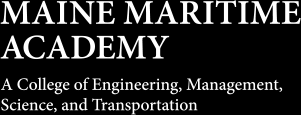Arts & Sciences
War Talks
Speakers series and class probe the implications of war around the world.
In October at the Alfond Center, author, journalist and filmmaker Peter Davis screened his Academy Award-winning film on the Vietnam War, Hearts and Minds (1974), to the MMA community and public, invited by Adjunct Instructor Katharine Turok and her class, “Documenting War Around the World,” as the first in the “War Talks” series sponsored by Arts & Sciences.
For moments after the profoundly moving film was shown there was silence, punctuated with muted sighs. They were thoughtful moments.
“A lot of students come to the course thinking what’s occurring in the world is represented soley by CNN or Fox News,” says Turok. As they discover in the class and series, “it’s so much more complicated than that.”
Students use an interdisciplinary approach to study the human experience of war, including unintended consequences, from post-World War II through present-day events in areas such as Sudan, Syria and Afghanistan.
It is not an ideologically driven course.
They are assigned international press coverage and authors, such as the classic Michael Herr’s Dispatches and Janine di Giovanni’s recent memoir about Syria, The Morning They Came for Us.
“Some of the issues we deal with are theoretical,” says Turok, “even anthropological—for instance, human nature and aggression—peaceful resolutions, options that include military intervention or diplomacy, rather than taking military action. But also, the class touches students on a very personal level right up to their friends and family, where there might be discussion of a family member’s military experience being shared for the first time.”
The “War Talks” series included Davis, Capt. Nathan Gandy ’92, Commandant; Adria Horn, Director of the Maine Bureau of Veterans’ Services; author Sarah Smiley; and Joseph Miller, Iraq veteran and military science and history instructor.
“It is not an ideologically driven course,” Turok says. “It’s simply an attempt to take an impartial look at the human experience of war and its aftermath in literature, film, visual arts and memoir. Most students entering the course believe war is inevitable. By the end, they have a broader, deeper appreciation of the moral, political, military and psychological dimensions.”█
Photo: Shutterstock
HELLO!!
